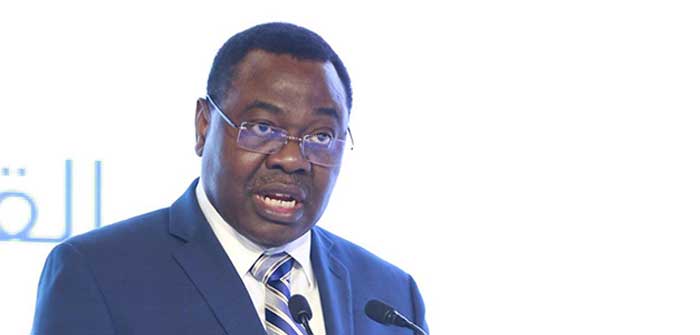The president of the ICAO Council has emphasized the importance of aviation to worldwide economies, calling for investment in all fields of the sector in his keynote address to the Global Aviation Investment Summit in Dubai.
Olumuyiwa Benard Aliu reminded attendees of the annual event that “aviation is essential to states as they seek to access regional and global markets, and these connections in turn enhance consumer benefits and choices, create jobs, and significantly stimulate tourism and trade”.
Last year, 4.3 billion passengers and 58 million tonnes of freight were carried by global commercial operators on 38 million flights.
Aliu commented, “With this massive volume of operations, and noting air transport’s important access and connectivity benefits, it is not difficult to appreciate why our sector is responsible today for providing meaningful employment and sustainable careers to over 65 million men and women worldwide, while contributing more than US$2.7tn to global GDP.”
Aliu also highlighted that both air passenger traffic and air freight traffic globally should more than double by 2035, and that the countries that make the needed investments required now in national and regional infrastructure, capacity and technologies will also be the ones that benefit the most in the coming decades from aviation’s rapidly accelerating global connectivity.
Aliu stressed the importance of developing and implementing national and regional aviation infrastructure programs and plans in full cooperation with the investment stakeholder community, noting as well that state planning must also have strategic infrastructure targets and performance ambitions that are guided by and consistent with ICAO’s Global Plans.
He said, “This facilitates compliance with the ICAO standards and recommended practices which underpin the safe, secure and sustainable development of the international civil aviation network.”
In terms of suggested solutions, he stressed that states must determine strategic infrastructure targets by conducting national and regional gap-analyses between forecasted demand and current capacity.
Aliu further noted that business case analysis should also be conducted to accurately delineate all requirements, reduce investor risk and evaluate projected returns, and that this in turn requires the establishment of institutional, legal and regulatory frameworks, together with monitoring and evaluation frameworks.
Finally, he made a very strong recommendation that primary focus should be placed by all concerned on investments earmarked for educating and training the next generation of aviation professionals.
Aliu concluded, “Infrastructure development absolutely requires aligned financial investments and enhancements in human capacity development, which are completely co-dependent. There is no point in upgrading technologies and facilities to the latest performance specifications if the personnel are not on hand to professionally operate them or provide appropriate oversight.
“Additionally, states should take pragmatic measures to build a transparent, stable and predictable investment climate to support aviation development, for example, by engaging multi-stakeholders, diversifying funding sources, and fully considering all options relating to private investment, business reform, private finance initiatives, public-private partnerships (PPPs) and incentive schemes as appropriate.”
Interested in airport investment? Don’t miss the ‘Innovative Airport Investment‘ panel discussion at the Passenger Terminal Conference, which takes place during Passenger Terminal Expo, on March 26, 27 and 28, 2019, in London.


